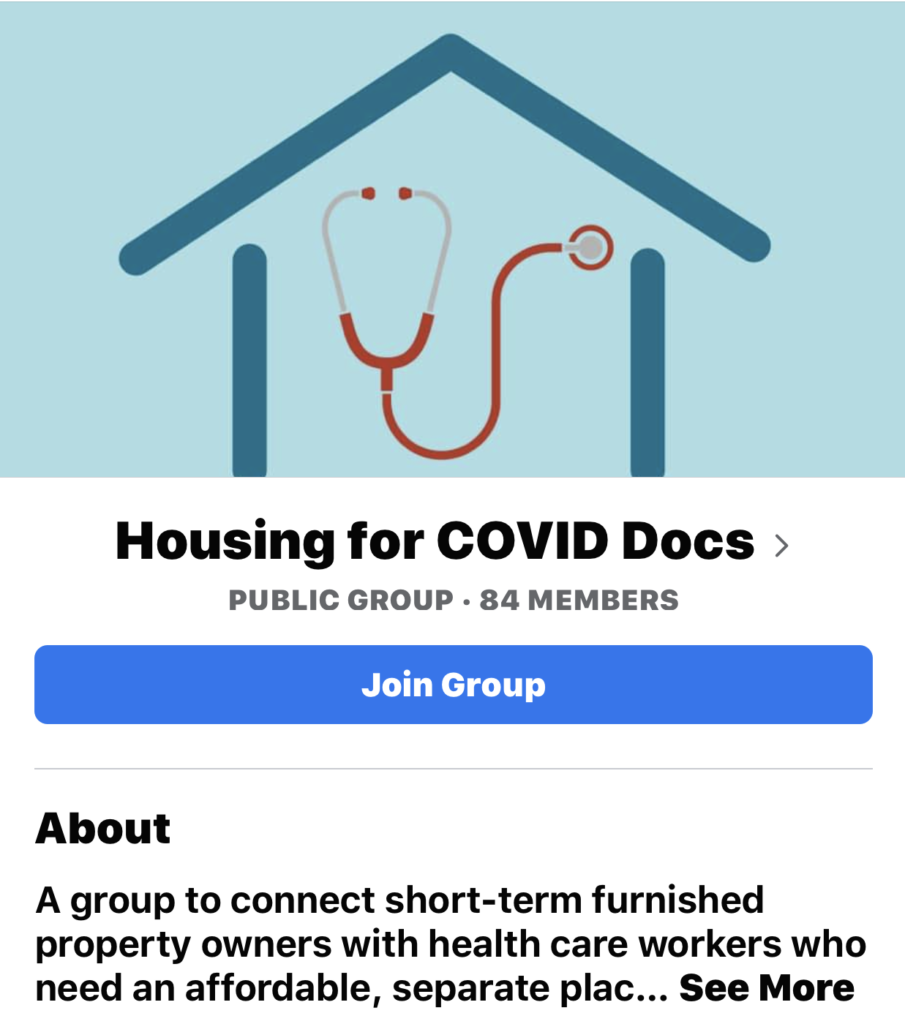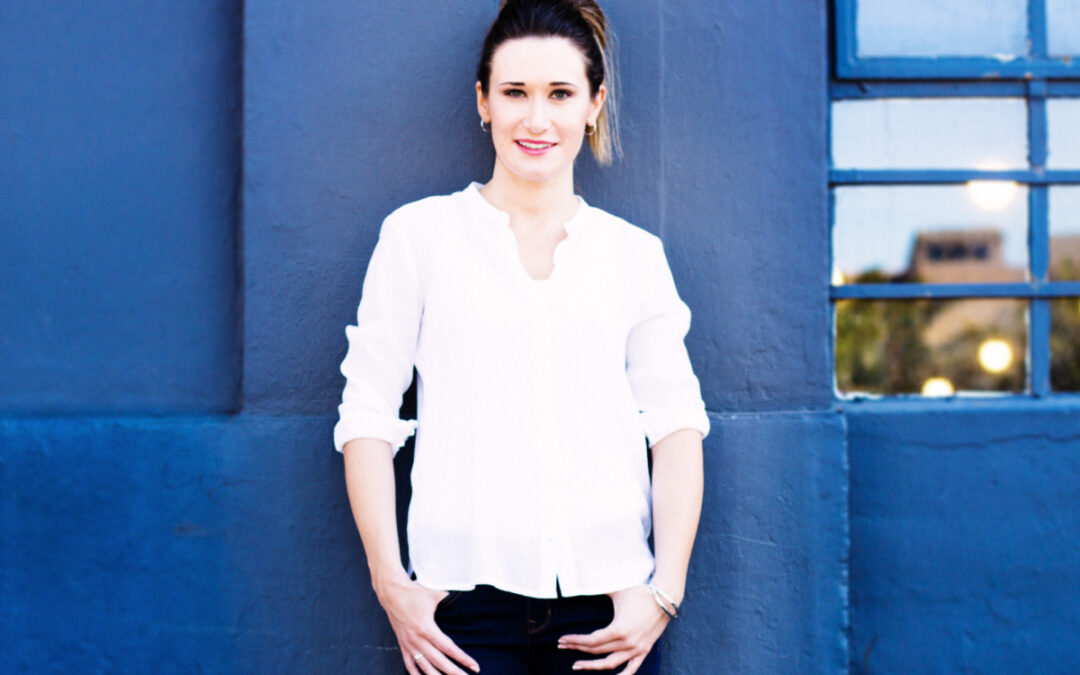Updated on May 8, 2023
When lockdowns stopped guests from coming to her vacation rental, Aimee Bothwell used the time to help others by finding short-term rentals for medical workers treating COVID-19 patients.
Before the COVID-19 Outbreak
Aimee owns a condominium in Columbus, Ohio. In January, she began offering it as a short-term rental to academic guests, such as visiting or newly relocating faculty and scholars at local universities, including Ohio State. Short-term rental guests offer Aimee the flexibility of a “home base,” allowing her to come back and spend time with Ohio family and friends periodically, between tenants.
She relies on the rental income only to cover the mortgage. However, short-term renting allows Aimee to pursue her dream of long-term travel while meeting demand in the community for short-term, high quality, furnished housing.
“In central Ohio, it’s easy to find furnished student apartments that are low quality and noisy; or short-term corporate rentals that are extremely expensive—there’s little in between,” Aimee explained. “My property meets the demand for a higher-quality living situation in a peaceful, mature community, [while offering something] more affordable than a corporate rental.”
Short-term rental hosting in crisis
Since 2018, Aimee has traveled, visiting friends and family, while working on a novel. She’d just arrived in Bulgaria when the coronavirus took hold in Europe. Bulgarian officials urged non-residents to leave the country. Aimee couldn’t return to the U.S. because her house was rented out, so she headed to the United Kingdom to be near her British father.
Once COVID-19 hit the U.S., Aimee stopped receiving reservation requests back in Ohio—in spite of lowering her nightly rate. Fortunately, her current guests chose to extend their lease through the end of May. Getting her own rental booked for a bit, allowed Aimee to focus on her current project, Housing for COVID Docs, initiated on Facebook through the group, Airbnb/HomeAway/Vacation Rental MasterMind, on March 21.

She’s connecting medical professionals worldwide to short-term rentals in whatever community they’re currently serving. Inspiration for the project came in part after Aimee read articles in the New York Times and The Guardian. Both pieces referenced negative health impacts on medical workers, including doctors, involved in the diagnosis and treatment of COVID-19.
Emotional and mental consequences for COVID healthcare professionals include loss of sleep due to recurring nightmares, anxiety, feelings of uncertainty, family conflicts and fears of contracting the virus themselves or spreading it to family members.
Forty-five property owners joined the Facebook group within the first 36 hours. The majority of owners are from the U.S.—including Dallas, Houston and Las Vegas. Aimee partly attributes this to the rapid increase in the number of coronavirus cases in the U.S. over the past week. However, she’s also connected with owners offering rentals in Canada, the UK and Nicaragua.
“The responses I received from property owners were encouraging to me… it’s a way [they] can do their part in this time of crisis. It also allows them to still get some amount of revenue—even if just to cover bills—and to have their property filled, instead of leaving it empty, and having to worry about it,” Aimee shared.
Connecting medical workers to housing
Right now, she’s living in the UK with her friend and health service nurse, Patrick Fenton. When COVID-19 first began to spread in the UK, Patrick lived in a small, shared house, with four people, and only one bathroom.
“There is emerging evidence coronavirus can be transmitted through fecal matter, so this seemed dangerous to me,” Aimee noted. “On top of that, under new UK guidelines, if anyone in a household falls ill, their household members must all isolate for 14 days. So, if anyone of Patrick’s housemates were to become sick, he wouldn’t be able to work—Patrick needs to work as much as possible right now.”
Within 48 hours, Aimee found a two-bedroom, two-bathroom short-term rental to share with Patrick. This allows him to live in the bedroom with the ensuite, while they prioritize staying two meters from each other inside the apartment. “My top priority right now is not to get ill if I can avoid it, so I don’t risk taking a hospital bed from someone who critically needs it.”
Aimee said Patrick is grateful for the changed living situation and feels “significantly more relaxed” and able to handle the increased stress and work hours. He’s less worried about infecting housemates. “He does worry about me of course, but at least I’m just one person—and I’m also a clean freak.”
“We’re very grateful to this property owner for the deal they were able to offer, and know we are quite lucky to be here,” she said.
Aimee is not currently renting her Ohio property to medical professionals but plans to once her tenants leave. There are a number of local hospitals in the area, and Aimee believes her condo would be perfect for two medical professionals to share. “The two bedrooms and bathrooms are separated by an expansive living room—offering privacy and comfort to two individuals.”
Her next step is to get a website for the project up and running. Regarding whether Aimee plans to return to the U.S. anytime soon, she said, “At this point, I don’t know how long I’ll be here. I’m taking things one month at a time.”
Read more: See how a host in Union, Missouri, helped house medical workers during the COVID crisis.
Read our latest stories!
- April 2025 Newsletter
- Dave Krauss: The visionary CEO behind Rent Responsibly
- Poconos HOA court case sets statewide precedent for vacation rental owners
GET UPDATES

